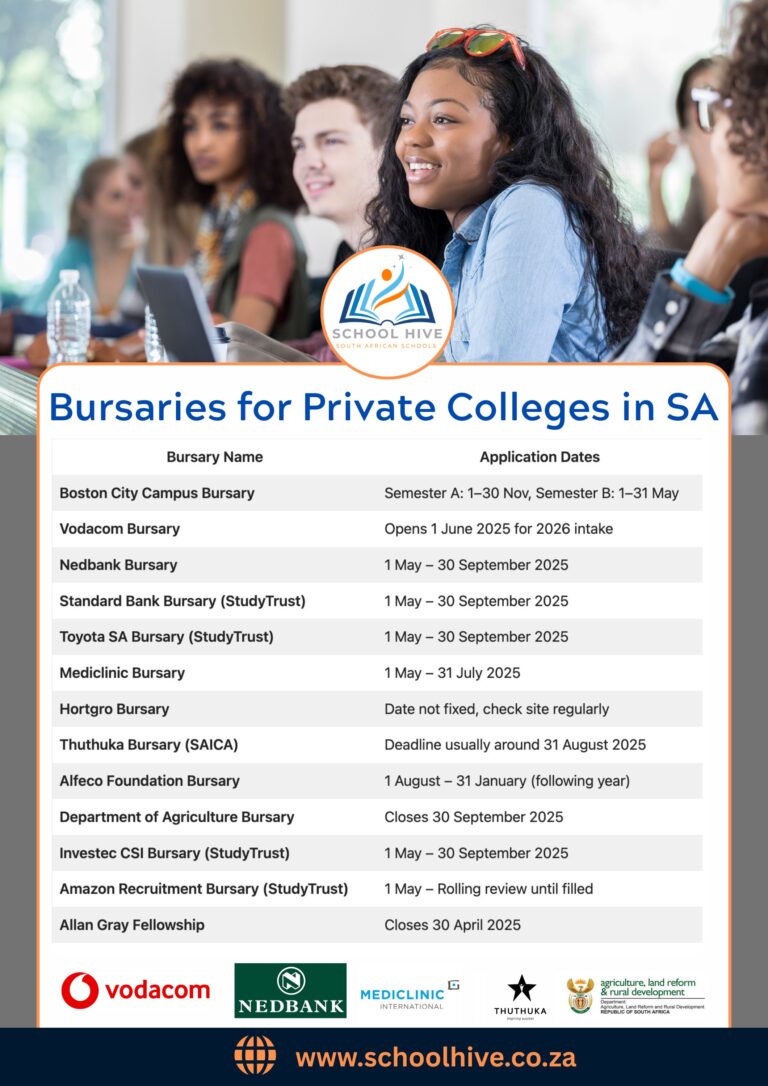On this page, you will find the real breakdown of Netcare Education courses and fees for 2026, including the official numbers from Netcare’s latest 2025 fee document and the important details that the document fails to explain clearly.
Every year, we speak to hundreds of students who are accepted into Netcare but are later shocked by the hidden and unplanned costs that were not properly outlined. The truth is, the official document is factual but incomplete , it gives you the prices but not the real story behind those numbers.
The very important thing is: knowing what’s missing helps you plan better, avoid surprises, and keep your nursing dream from turning into financial frustration.
---Advert---
How Netcare Fees Work and What’s Missing
The document begins with payment rules and banking details, and that part is clear. You must pay directly into Netcare’s First National Bank (RMB Corporate Banking) account. No campus accepts cash.
However, what’s missing is a clear explanation of how payment tracking works. Many students get delayed because their payments are not linked to the right student number or campus code. Netcare should ideally build an online payment portal where students can upload proof of payment and see updates in real time,rather than waiting for the finance office to manually capture deposits.
Students can fix this gap by keeping every proof of payment and emailing it to the finance department immediately after each transaction, including their campus code (J, P, K, W, or E).
The document also says tuition includes VAT exemption, SANC registration, and electronic materials, but it does not explain what “electronic study materials” mean. Are they PDFs, an online portal, or printed manuals? This matters because many first-year students arrive without proper devices or data access.
Netcare could improve this by providing a short pre-enrolment checklist or demo portal before registration. Students should test their laptops, data speed, and login access a month before classes start.
Full Breakdown of Netcare Courses and Fees 2026
According to Netcare’s own financial schedule, these are the official 2026 projected fees for self-funding students:
| Course Name | Duration | Predicted 2026 Fee |
|---|---|---|
| Higher Certificate in Nursing (Auxiliary) | 1 year | R64 410 |
| Diploma in Nursing: General Nurse (Year 1 of 3)** | 3 years | R72 450 |
| Diploma in Nursing: General Nurse (Year 2 of 3)** | 3 years | R72 450 |
| Diploma in Nursing: General Nurse (Year 3 of 3)** | 3 years | R72 450 |
| Postgraduate Diploma (Reg. 635)** | 1 year | R74 200 |
| In-Service Certificate (6-Month Post-Basic)** | 6 months | R31 124 |
| eLearning Programme | 3 months | R4 494 |
| 3-Month Upgrade Course | 3 months | R15 562 |
| CPD (Per Session)** | Per session | R550 |
Now here is where most students get confused. The official table ends here, but it does not include accommodation, travel, or clinical uniform costs, which can easily add R10 000 to R15 000 per year depending on where you live and train.
Netcare should consider publishing an “Estimated Total Cost of Study” table that combines tuition, textbooks, uniform, and living expenses. It would help students prepare for the real cost of studying nursing in South Africa.
Students can work around this by calculating their personal living costs early and comparing them to other colleges like Life Healthcare or Mediclinic Learning Centre to get perspective.
Higher Certificate in Nursing (Auxiliary) – Regulation R169
This is the main entry point into nursing at Netcare. The course lasts one year and costs R64 410 for 2026.
It qualifies you as an Auxiliary Nurse, allowing you to work under supervision. The document does mention textbook costs of about R7 500, but it does not explain that clinical placements often require additional uniforms, vaccinations, and travel to hospitals.
These are real costs students face during their clinical training. Netcare could easily include a clinical readiness pack section in their fees document, breaking down items like medical screening, travel allowances, and uniform sets.
Students can prepare by setting aside at least R2 000–R3 000 for these extras during the first semester.
Diploma in Nursing (General Nurse) – Regulation R171
This is the most sought-after qualification at Netcare. It’s a three-year diploma that costs around R72 450 per year in 2026.
What’s missing in the document is the real explanation of the payment plan. It mentions “monthly instalments” but does not clearly state how many months, what the due dates are, or whether late payment penalties apply.
Netcare could improve transparency by publishing an instalment schedule example, for instance, how a R72 450 fee is split across 10 or 12 months. That would make financial planning easier for parents and students.
Students can solve this gap by requesting the NetEd SF 011 Student Fees Payment Process document from the finance office. It explains monthly amounts and deadlines for each course.
Also, while the tuition includes SANC registration, the document never mentions the SANC Professional Licensing Exam fee at the end of the course. It says “as applicable” but doesn’t say how much. That exam usually costs between R2 000 and R2 500, which every final-year student must pay before they can graduate.
Postgraduate Diploma in Nursing (Reg. 635)
This one-year course is meant for qualified nurses who want to specialise further. The 2026 fee is R74 200.
Netcare lists the deposit amount (R18 000) and the total fee but does not mention what specialisations are available under this qualification. Without that information, students cannot compare whether it aligns with their field — for example, advanced midwifery, operating theatre, or critical care.
Netcare could fix this by adding a detailed breakdown of the available postgraduate streams, their career outcomes, and their registration categories under SANC.
Students can bridge the gap by contacting their chosen campus and asking for the Regulation 635 programme brochure, which lists available specialisations per year.
In-Service Certificates and Short Courses
For nurses already working, Netcare offers short, focused training such as the Post-Basic 6-Month Certificate, 3-Month Upgrade, and CPD sessions.
The fees for 2026 are:
- Post-Basic Certificate: R31 124
- eLearning: R4 494
- Upgrade Course: R15 562
- CPD sessions: R500–R2 500, depending on duration.
What’s missing here is a clear list of which short courses are accredited by the Nursing Council and which are not. Many nurses attend CPD sessions expecting a formal qualification, only to find out later that it was non-credit bearing.
Netcare should consider labelling each short course as “SANC-accredited” or “Professional Development only.”
Students can avoid disappointment by checking each course code on the SANC website before enrolling.
Recognition of Prior Learning (RPL)
The RPL section in the document is useful, it gives the 60% fee rule and explains the process.
What it doesn’t tell you is how long the process takes or what happens if your RPL is rejected.
Netcare should include an estimated RPL timeline (for example, “4–6 weeks for evaluation”) and refund policy in case an application is unsuccessful.
Students should submit complete portfolios and proof of past clinical hours early, before the application closing date, to avoid delays.
Additional Administrative Fees
The extra fees section is short but very important. It lists things like replacement cards, transcripts, and reports.
However, the missing information is the turnaround time, how long it takes to receive these documents after payment. Many nurses applying overseas or to other institutions struggle because their transcripts are delayed by months.
Netcare could fix this by including a service timeline (for example, “Transcripts processed within 21 working days”).
Students can reduce delays by keeping scanned copies of all results each semester.
Repeat and Extension Module Fees
The extension fees are listed, but the document doesn’t say how many times a student is allowed to extend or repeat a module. That silence can cause serious confusion, especially when clinical modules are delayed due to hospital placement issues.
Netcare should specify a maximum repeat or extension limit and what academic support will be provided before that point.
Students can close this gap by asking their Programme Manager for the Assessment, Progression and Promotion Letter, it explains repeat rules clearly.
What’s Missing Altogether and Why It Matters
To be quite honest with you, the biggest gaps in Netcare’s tuition document are not the numbers but the missing explanations behind them.
Here is what’s completely left out:
- Application and registration fees: The document never states how much you pay to apply or register before your deposit.
- Accommodation and living costs: No guidance on housing or transport budgets for out-of-town students.
- Refund and withdrawal policies: It does not explain what happens if you deregister early or defer your studies.
- Financial aid or NSFAS info: It never states that Netcare is not funded by NSFAS, which many new students assume.
- Campus-specific contact details: The document assumes students know where to call, but it lists no finance office emails.
These gaps are small individually, but together, they create confusion that delays or derails many first-year students.
Netcare could easily improve transparency by adding a Student Financial Guide Addendum that covers refund policies, late payments, and financial support options.
What Students Can Do Now
If you plan to apply for 2026, here’s what you can do to stay ahead of these gaps:
- Request both the official fee document and the payment process policy (NetEd SF 011).
- Create your own study cost plan, including tuition, living, and transport.
- Confirm all deadlines directly with your chosen campus.
- Keep every receipt, statement, and email proof of payment.
- Use your correct student reference from day one (campus code + student number).
By doing this, you will protect yourself from unnecessary financial stress and start your studies on solid ground.
Final Thoughts
Netcare remains one of the most respected nursing education providers in South Africa. Its training quality, hospital exposure, and SANC accreditation are unmatched. But the fee structure document alone does not tell the full story.
If Netcare can improve its communication by explaining its financial process more transparently, and if students prepare with complete cost awareness, the experience can be both affordable and empowering.
As always, the point I am making is simple: plan early, pay smart, and ask questions until you fully understand your costs.
Source
Official: Netcare Education Tuition Fees for Self-Funding Students 2025 (Version 3, September 2025)
---Advert---


